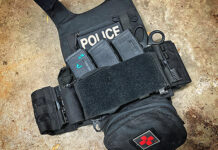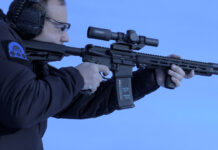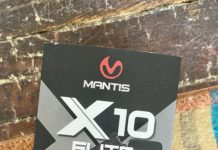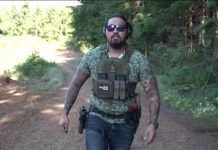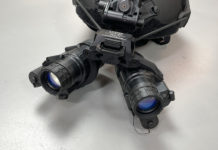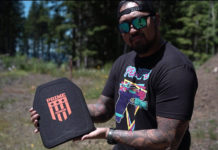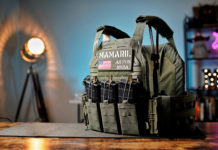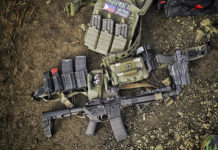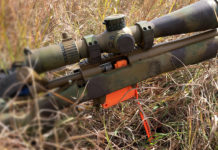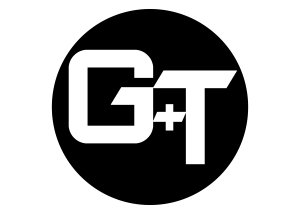Chris Tran Reviews the CMC Trigger System and gives his overall impression of the single stage drop in pack. Talks with Jack Biegel owner of CMC Triggers about the history and future of the company.
Since building my first AR as a hobbyist several years ago, I’ve gone through several different mindsets when it comes to triggers. When I first started, I didn’t know any better, so a “mil-spec” single stage trigger was what I learned on, and what I knew. Of course when the AR-building bug struck again I did what many builders and hobbyists do – spend a crap ton of money on a bunch of add-ons, attachments, doodads and whiz-bangs, and I ended up with an 8-9 lb rifle with a bunch of stuff I really didn’t need in real life. It looked cool, though.
Now, as I’ve gone through several other builds over the years, gained experience as an end-user, tried out several different trigger systems and carry a rifle for work, I’ve found myself gravitating back to single-stage triggers. As fortune would have it, I was given an opportunity to check out a great trigger pack from CMC Triggers. The trigger pack from CMC Triggers is a drop-in, self-contained, replacement trigger assembly that is easily installed in mere minutes. I snapped my new trigger pack into a build that I was working on based around the Northtech Defense receivers, and was pleasantly surprised with how quickly and easily the pack installed.
Since it is a self-contained trigger pack, CMC Triggers has added supplemental hammer and trigger pins that are screwed into place to keep the pins from theoretically walking out during firing. (NOTE: These are NOT the old pins with the lock washers). They come standard with new units, or can be purchased separately through CMC Triggers for those that have owned a CMC Triggers pack for some time.
Installation was a breeze and accomplished a lot fast than I thought, so I dry fired a bit with it to see how it felt. Wow. I can say without hyperbole or exaggeration, this is the best single-stage trigger I’ve ever fired before. Hands down. There had to be something more to it; NO take-up, and a very crisp, clean, and…well…subdued (?) reset. I still have a hard time describing it without simply putting my rifle into the reader’s hands and saying, “Try it!”
I mentioned before that the trigger pack is completely self-contained, so I suppressed my monkeyfingers impulses to fiddle around with the pack…because simply put, there’s nothing to fiddle with. The pack is simple, precise, and pretty much perfect right out of the box.
Another distinct feature with the CMC Triggers pack was the flat bow trigger. This was the first flat bow trigger I’ve ever used before, and the little “foot” at the extreme end of the trigger bow was unique to say the least. Was it a gimmick to set it apart from the rest, or did it have a specific engineered purpose?
I had more questions than answers, so I reached out to the good folks at CMC Triggers to speak with them directly about the theories behind the trigger pack design. What an eye opener it was.
CMC Triggers in a Historical Context
Author’s Note: This is the part of the article that I frankly struggled with. I reached out to CMC Triggers and had a great phone conversation with owner Jack Biegel. Interviews are usually not a problem for me; however Jack’s passion for what he does, and the earnest love he has for his family, his team, and his product, quite frankly left me unable to accurately portray his dedication in writing. So, I apologize in advance, as this is a meager overview of our conversation.
Jack started working for his uncle in the aerospace industry in 1978 machining and building parts for the DOD. It was here that his talent manifested and his analytical eye was honed. Jack ended up running the company from 1993-2006 with his cousin, who happened to be friends with some guy named Chip McCormick.
In 2003, Jack and his company found themselves a little low on work, and he met with Chip in Arlington, TX. Jack told me he then started to reverse-engineer different trigger assemblies to see how they could be improved. Working with Chip, they came up with both single and 2-stage trigger pack prototypes, which was Jack’s first real foray into manufacturing FIREARMS.
Sticking with just the single stage trigger design, Jack produced about 6,000 trigger groups for Chip, and took a break from 2006 until about 2010 to pursue other ventures.
In mid 2010, Jack started his own machine shop, and recontacted Chip. Jack again began to do work for Chip, until Chip decided to call it quits in 2011, and Jack’s crew took over the company. Like any other new helmsman, Jack’s newly-acquired company went through some growing pains and organizational challenges, and Jack took over full ownership of the company in April of 2012.

Taking Stock and Sharpening Focus
CMC Triggers is, and has been, a family affair. Jack gives much of the credit for the success of his business to his wife and daughter, who run the social media, sales, and customer service side of the house. Jack was very specific about this family partnership; stating that once he took full ownership of the company in 2012 he had to come to a reckoning with himself and his company.
“The problem was never the manufacturing,” he told me, “the primary focus was that customer service needed to improve.” One of Jack’s overarching philosophies, much like in his personal life, is that it is always about continuous improvement. Whether it is in his personal and spiritual life, or steering his company onwards, Jack’s drive to continuously improve and bring his entire team along with him, is relentless. Jack has maintained much of his original staff since the 90’s, and he told me that he is simply, “blessed by God,” to be working with the team he is working with, and that it is a team effort.
Jack told me that initially the biggest challenged he faced was the perception of the company. His challenge was to figure out how to promote his triggers as “less expensive, not “cheaper,” and to avoid consumer suspicion that the company was cutting corners in order to bring his product on the market at a lower price point than his competitors.
Jack stated that his company philosophy is to “dedicate ourselves every day to build a product that is the best of the best in materials, product, and production, without having to take a second mortgage out on the house.” Has a nice ring to it.
In this day and age, with so many companies and manufacturers out there, Jack recognized that customer service really is king. Jack told me, “One of my biggest joys is getting to talk to guys who tell me they received good customer service from CMC Triggers; it doesn’t cost much money to make everyone smile.”
Deliberate Engineering
At this point, I’ve gotten a few hundred rounds downrange using my Northtech Defense rifle that is equipped with the CMC Triggers flat bow trigger. This is a fast, accurate trigger pack. What sets this flat bow apart from the others is the little “index foot/ramp” that juts forward at the lowest extreme of the trigger. When shooting a CMC-equipped rifle, the 3.5 trigger breaks crisply and cleanly, but not “snappy.” It is not a glass-break feel…again, as I said before, hard to describe.
I asked Jack about this, and he explained that the index foot/ramp provides for consistent and repeatable trigger finger placement on the trigger each and every time, a natural index point. He also mentioned that since the trigger finger basically wedges at the bottom extreme of the trigger, the pull of the trigger actually feels about .5-1lb lighter than the pre-set 3.5lbs. “It’s all about the leverage.”
CMC Triggers does offer a curved bow trigger pack as well, I bought that one a while ago and have it currently installed in my San Tan Tactical build-in-progress, and I’m looking forward to finishing that one up so I can run both versions through their paces. The jury is out to see which one I prefer at this point, but as usual, I’ll do my best to update the review with future impressions.
Jack did not and would not go into the actual fabrication and manufacturing process of his trigger packs, but he did have this to say, “Tolerances are everything. I didn’t realize the importance of tolerances when I first got started. Everyone knows (his team) that 100% inspection is my baseline expectation. If any pack isn’t up to par, it is trashed.”
What the Future Holds
Jack circled back around at this point in our conversation to remind me that when he and Chip first started collaborating, they had looked at both single and 2-state trigger packs, and that there were 2-stage prototypes mocked up as far back as 2005-2006. Jack told me that when he came back to it in 2010, he remade the design, and committed to getting the redesigned 2-stage triggers out on the market. I’ve seen pics of these released already, and am greatly looking forward to trying a 2-stage out. Stay tuned for updates on that.
I sheepishly admitted to Jack that I had a hard time coming up with words to describe the trigger break on the flat bow. I could almost hear him smiling on the other end of the line, “Creamy smooth trigger action,” he said.

Want to try one out for yourself? Check out CMC Triggers online at http://www.cmctriggers.com and see their list of vendors.
While you’re at it, find CMC Triggers on Facebook at https://www.facebook.com/CmcTriggersCorp
Or, just do what I do and order directly from Rainier Arms: https://www.rainierarms.com/?page=shop%2Fmanufacturer&manufacturer=227



